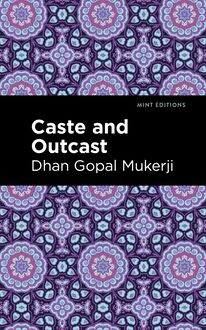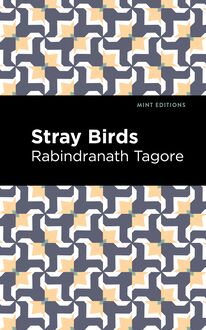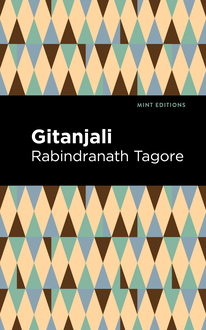-
 Univers
Univers
-
 Ebooks
Ebooks
-
 Livres audio
Livres audio
-
 Presse
Presse
-
 Podcasts
Podcasts
-
 BD
BD
-
 Documents
Documents
-
- Cours
- Révisions
- Ressources pédagogiques
- Sciences de l’éducation
- Manuels scolaires
- Langues
- Travaux de classe
- Annales de BEP
- Etudes supérieures
- Maternelle et primaire
- Fiches de lecture
- Orientation scolaire
- Méthodologie
- Corrigés de devoir
- Annales d’examens et concours
- Annales du bac
- Annales du brevet
- Rapports de stage
La lecture à portée de main
Vous pourrez modifier la taille du texte de cet ouvrage
Découvre YouScribe en t'inscrivant gratuitement
Je m'inscrisDécouvre YouScribe en t'inscrivant gratuitement
Je m'inscrisEn savoir plus
Vous pourrez modifier la taille du texte de cet ouvrage
En savoir plus

Description
The Hungry Stones and Other Stories (1916) is a collection of short stories by Rabindranath Tagore. Published following his ascension to international fame with the 1912 Nobel Prize in Literature, the collection contains some of Tagore’s most celebrated works of fiction. “Before a week had passed, the place began to exert a weird fascination upon me. It is difficult to describe or to induce people to believe; but I felt as if the whole house was like a living organism slowly and imperceptibly digesting me by the action of some stupefying gastric juice.” In the title story of the collection, a tax collector moves to a deserted palace on the outskirts of a small town. Devoting himself to his daily work, he returns home at night to sleep and spends as little time as possible indoors. Rumored to be haunted, the palace was built during the height of the Mughal Empire and was once a symbol of fortune for all those who entered its gate or passed it by along the road. For Srijut, however, it is a source of terror and unease, a living entity filled with restless spirits who all seem to vie for his soul. Elsewhere in the collection, Tagore explores the lives of rich and poor, giving voice to struggling writers, suffering wives, and young servants alike with an ease and familiarity possessed by the purest of storytellers. With a beautifully designed cover and professionally typeset manuscript, this edition of Rabindranath Tagore’s The Hungry Stones and Other Stories is a classic of Indian literature reimagined for modern readers.
Sujets
Informations
| Publié par | Mint Editions |
| Date de parution | 12 octobre 2021 |
| Nombre de lectures | 0 |
| EAN13 | 9781513213927 |
| Langue | English |
Informations légales : prix de location à la page 0,0400€. Cette information est donnée uniquement à titre indicatif conformément à la législation en vigueur.
Extrait
The Hungry Stones and Other Stories
Rabindranath Tagore
The Hungry Stones and Other Stories was first published in 1916.
This edition published by Mint Editions 2021.
ISBN 9781513215921 | E-ISBN 9781513213927
Published by Mint Editions®
minteditionbooks.com
Publishing Director: Jennifer Newens
Design & Production: Rachel Lopez Metzger
Project Manager: Micaela Clark
Translated by: Rabindranath Tagore and Mr. C.F. Andrews
Typesetting: Westchester Publishing Services
C ONTENTS T HE H UNGRY S TONES T HE V ICTORY O NCE T HERE W AS A K ING T HE H OME -C OMING M Y L ORD , T HE B ABY T HE K INGDOM O F C ARDS T HE D EVOTEE V ISION T HE B ABUS O F N AYANJORE L IVING O R D EAD ? “W E C ROWN T HEE K ING ” T HE R ENUNCIATION T HE C ABULIWALLAH (T HE F RUITSELLER FROM C ABUL )
T HE H UNGRY S TONES
M y kinsman and myself were returning to Calcutta from our Puja trip when we met the man in a train. From his dress and bearing we took him at first for an up-country Mahomedan, but we were puzzled as we heard him talk. He discoursed upon all subjects so confidently that you might think the Disposer of All Things consulted him at all times in all that He did. Hitherto we had been perfectly happy, as we did not know that secret and unheard-of forces were at work, that the Russians had advanced close to us, that the English had deep and secret policies, that confusion among the native chiefs had come to a head. But our newly-acquired friend said with a sly smile: “There happen more things in heaven and earth, Horatio, than are reported in your newspapers.” As we had never stirred out of our homes before, the demeanour of the man struck us dumb with wonder. Be the topic ever so trivial, he would quote science, or comment on the Vedas, or repeat quatrains from some Persian poet; and as we had no pretence to a knowledge of science or the Vedas or Persian, our admiration for him went on increasing, and my kinsman, a theosophist, was firmly convinced that our fellow-passenger must have been supernaturally inspired by some strange “magnetism” or “occult power,” by an “astral body” or something of that kind. He listened to the tritest saying that fell from the lips of our extraordinary companion with devotional rapture, and secretly took down notes of his conversation. I fancy that the extraordinary man saw this, and was a little pleased with it.
When the train reached the junction, we assembled in the waiting room for the connection. It was then 10 P . M ., and as the train, we heard, was likely to be very late, owing to something wrong in the lines, I spread my bed on the table and was about to lie down for a comfortable doze, when the extraordinary person deliberately set about spinning the following yarn. Of course, I could get no sleep that night.
When, owing to a disagreement about some questions of administrative policy, I threw up my post at Junagarh, and entered the service of the Nizam of Hydria, they appointed me at once, as a strong young man, collector of cotton duties at Barich.
Barich is a lovely place. The Susta “chatters over stony ways and babbles on the pebbles,” tripping, like a skilful dancing girl, in through the woods below the lonely hills. A flight of 150 steps rises from the river, and above that flight, on the river’s brim and at the foot of the hills, there stands a solitary marble palace. Around it there is no habitation of man—the village and the cotton mart of Barich being far off.
About 250 years ago the Emperor Mahmud Shah II had built this lonely palace for his pleasure and luxury. In his days jets of rose-water spurted from its fountains, and on the cold marble floors of its spray-cooled rooms young Persian damsels would sit, their hair dishevelled before bathing, and, splashing their soft naked feet in the clear water of the reservoirs, would sing, to the tune of the guitar, the ghazals of their vineyards.
The fountains play no longer; the songs have ceased; no longer do snow-white feet step gracefully on the snowy marble. It is but the vast and solitary quarters of cess-collectors like us, men oppressed with solitude and deprived of the society of women. Now, Karim Khan, the old clerk of my office, warned me repeatedly not to take up my abode there. “Pass the day there, if you like,” said he, “but never stay the night.” I passed it off with a light laugh. The servants said that they would work till dark and go away at night. I gave my ready assent. The house had such a bad name that even thieves would not venture near it after dark.
At first the solitude of the deserted palace weighed upon me like a nightmare. I would stay out, and work hard as long as possible, then return home at night jaded and tired, go to bed and fall asleep.
Before a week had passed, the place began to exert a weird fascination upon me. It is difficult to describe or to induce people to believe; but I felt as if the whole house was like a living organism slowly and imperceptibly digesting me by the action of some stupefying gastric juice.
Perhaps the process had begun as soon as I set my foot in the house, but I distinctly remember the day on which I first was conscious of it.
It was the beginning of summer, and the market being dull I had no work to do. A little before sunset I was sitting in an arm-chair near the water’s edge below the steps. The Susta had shrunk and sunk low; a broad patch of sand on the other side glowed with the hues of evening; on this side the pebbles at the bottom of the clear shallow waters were glistening. There was not a breath of wind anywhere, and the still air was laden with an oppressive scent from the spicy shrubs growing on the hills close by.
As the sun sank behind the hill-tops a long dark curtain fell upon the stage of day, and the intervening hills cut short the time in which light and shade mingle at sunset. I thought of going out for a ride, and was about to get up when I heard a footfall on the steps behind. I looked back, but there was no one.
As I sat down again, thinking it to be an illusion, I heard many footfalls, as if a large number of persons were rushing down the steps. A strange thrill of delight, slightly tinged with fear, passed through my frame, and though there was not a figure before my eyes, methought I saw a bevy of joyous maidens coming down the steps to bathe in the Susta in that summer evening. Not a sound was in the valley, in the river, or in the palace, to break the silence, but I distinctly heard the maidens’ gay and mirthful laugh, like the gurgle of a spring gushing forth in a hundred cascades, as they ran past me, in quick playful pursuit of each other, towards the river, without noticing me at all. As they were invisible to me, so I was, as it were, invisible to them. The river was perfectly calm, but I felt that its still, shallow, and clear waters were stirred suddenly by the splash of many an arm jingling with bracelets, that the girls laughed and dashed and spattered water at one another, that the feet of the fair swimmers tossed the tiny waves up in showers of pearl.
I felt a thrill at my heart—I cannot say whether the excitement was due to fear or delight or curiosity. I had a strong desire to see them more clearly, but naught was visible before me; I thought I could catch all that they said if I only strained my ears; but however hard I strained them, I heard nothing but the chirping of the cicadas in the woods. It seemed as if a dark curtain of 250 years was hanging before me, and I would fain lift a corner of it tremblingly and peer through, though the assembly on the other side was completely enveloped in darkness.
The oppressive closeness of the evening was broken by a sudden gust of wind, and the still surface of the Suista rippled and curled like the hair of a nymph, and from the woods wrapt in the evening gloom there came forth a simultaneous murmur, as though they were awakening from a black dream. Call it reality or dream, the momentary glimpse of that invisible mirage reflected from a far-off world, 250 years old, vanished in a flash. The mystic forms that brushed past me with their quick unbodied steps, and loud, voiceless laughter, and threw themselves into the river, did not go back wringing their dripping robes as they went. Like fragrance wafted away by the wind they were dispersed by a single breath of the spring.
Then I was filled with a lively fear that it was the Muse that had taken advantage of my solitude and possessed me—the witch had evidently come to ruin a poor devil like myself making a living by collecting cotton duties. I decided to have a good dinner—it is the empty stomach that all sorts of incurable diseases find an easy prey. I sent for my cook and gave orders for a rich, sumptuous moghlai dinner, redolent of spices and ghi.
Next morning the whole affair appeared a queer fantasy. With a light heart I put on a sola hat like the sahebs, and drove out to my work. I was to have written my quarterly report that day, and expected to return late; but before it was dark I was strangely drawn to my house—by what I could not say—I felt they were all waiting, and that I should delay no longer. Leaving my report unfinished I rose, put on my sola hat, and startling the dark, shady, desolate path with the rattle of my carriage, I reached the vast silent palace standing on the gloomy skirts of the hills.
On the first floor the stairs led to a very spacious hall, its roof stretching wide over ornamental arches resting on three rows of massive pillars, and groaning day and night under the weight of its own intense solitude. The day had just closed, and the lamps had not yet been lighted. As I pushed the door open a great bustle seemed to follow within, as if a throng of people had broken up in confusion, and rushed out through the doors and windows and corridors and verandas and rooms, to make its hurried escape.
As I saw no one I stood bewildered, my hair on end in a kind of ecstatic deli
-
 Univers
Univers
-
 Ebooks
Ebooks
-
 Livres audio
Livres audio
-
 Presse
Presse
-
 Podcasts
Podcasts
-
 BD
BD
-
 Documents
Documents
-
Jeunesse
-
Littérature
-
Ressources professionnelles
-
Santé et bien-être
-
Savoirs
-
Education
-
Loisirs et hobbies
-
Art, musique et cinéma
-
Actualité et débat de société
-
Jeunesse
-
Littérature
-
Ressources professionnelles
-
Santé et bien-être
-
Savoirs
-
Education
-
Loisirs et hobbies
-
Art, musique et cinéma
-
Actualité et débat de société
-
Actualités
-
Lifestyle
-
Presse jeunesse
-
Presse professionnelle
-
Pratique
-
Presse sportive
-
Presse internationale
-
Culture & Médias
-
Action et Aventures
-
Science-fiction et Fantasy
-
Société
-
Jeunesse
-
Littérature
-
Ressources professionnelles
-
Santé et bien-être
-
Savoirs
-
Education
-
Loisirs et hobbies
-
Art, musique et cinéma
-
Actualité et débat de société
- Cours
- Révisions
- Ressources pédagogiques
- Sciences de l’éducation
- Manuels scolaires
- Langues
- Travaux de classe
- Annales de BEP
- Etudes supérieures
- Maternelle et primaire
- Fiches de lecture
- Orientation scolaire
- Méthodologie
- Corrigés de devoir
- Annales d’examens et concours
- Annales du bac
- Annales du brevet
- Rapports de stage

















